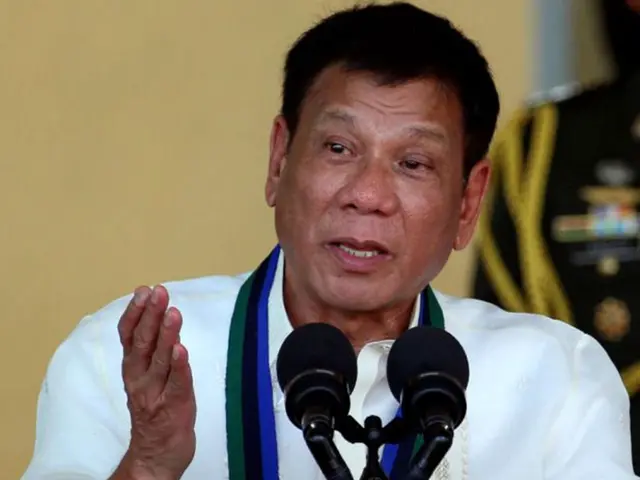"(Pedro) Poroshenko is very good at first sight, but he is weak and manageable, and (Yulia) Tymoshenko was once in the halls of power, but she did nothing good," said a business manager who only gave her first name, Natalia.
The 29-year-old was asked by Xinhua to make comments on the two leading presidential candidates as she cast her ballot at a polling station in the capital Kiev on Sunday.
She decided to support Oleg Liashko, the leader of the "Radical Party" because of his "radical actions."
"I will vote for Anatoly Grytsenko, because he has neither big businesses nor corruption scandals." said a student called Marina.
Candy tycoon emerges as winner
Despite lingering skepticism among voters, electoral statistics suggest the political scale is clearly tilting toward Poroshenko.
According to exit polls, the candy tycoon is emerging as the winner of Ukraine's presidential election.
Exit polls conducted by three respected Ukrainian survey agencies showed Poroshenko carried 55.9 percent of the votes in the field of 21 candidates. Tymoshenko, the former prime minister, obtained 12.9 percent, followed by Liashko, with 8 percent.
The election took place three months after former President Viktor Yanukovych fled to Russia following months of street protests over his refusal to sign an agreement with the EU.
Crimea in southern Ukraine then broke away to join Russia following a referendum in mid-March, and the eastern regions of Donetsk and Lugansk have since also declared their independence from Kiev.
The interim Ukrainian government has launched an offensive in the east to quash a separatist uprising, leaving dozens dead.
About 60 percent of the 35.5 million eligible voters turned out to cast their ballots in the election, which started at 8:00 a.m. local time (0500 GMT) and ended at 8:00 p.m. (1700 GMT), according to the Central Election Commission.
The government has deployed 55,700 police officers and 20,000 volunteers to guarantee public order at the 34,000 polling stations across the country.
**Voting restricted in eastern regions **
Voting was extremely restricted in Ukraine's restive eastern regions of Donetsk and Lugansk, where armed activists have vowed to do everything to prevent it.
In the greater Donetsk region, only 426 of 2,430 polling stations were open as of 9:30 a.m. (0630 GMT) and none in the city of Donetsk, which has 1 million people. In Lugansk, only two of the 12 polling districts were involved in the election.
In Krasnoarmeisk town, west of Donetsk and one of the few places in the region where the election was held, Xinhua reporters saw heavily armed police guarding the government building, where the office of the election committee was located. Inside, phones and profiles of the candidates lined the corridor.
People have to show their identification cards and find their names on a list of the region's eligible voters before they can get a ballot ticket.
Although official results will not be announced until Monday, exit poll results are usually seen as an indicator of official results.
If elected, Poroshenko, known as the "Chocolate King," has no time to lose to fulfil his pledges to end "war" with pro-Russian groups in eastern Ukraine, handle relations with the EU and Russia and rescue an economy sapped by months of chaos and more than two decades of post-Soviet mismanagement and chronic corruption.
Poroshenko promises dialogue
Poroshenko said his first step as president would be to visit the eastern Donbass region, home to Ukraine's coal mines, and "put an end to war, chaos, crime, and bring peace to the Ukrainian land."
He also promised a dialogue with residents of eastern Ukraine and said he was ready to extend amnesty to those who did not commit any crimes.
"For those people who don't take (up) weapons, we are always ready for negotiations to guarantee them security, to guarantee them defending of their rights, including speaking the language they want," he said.
A former national security council chief, foreign minister and trade minister, Poroshenko strongly backs closer ties with the EU, but also speaks about the need to normalize ties with Russia.
U.S. President Barack Obama said Sunday his country looked forward to working with the next president and the new parliament of Ukraine to support the country's efforts to enact important reforms.
Russian President Vladimir Putin said Russia would respect the choice of the Ukrainian people and cooperate with the new authorities. But he said the presidential election should have been preceded by a referendum to revise its constitution.
According to a joint statement released after Chinese President Xi Jinping held talks with Putin last week, the two sides urged all parties in the Ukraine crisis to exercise restraint, avoid escalating the conflict and seek a peaceful and political settlement to the current problems.
The statement called on all local and sociopolitical groups in Ukraine to participate in a comprehensive national dialogue, and jointly develop a concept for the future constitutional development of the country, in an effort to fully protect the citizens' basic rights and freedom.
 简体中文
简体中文



